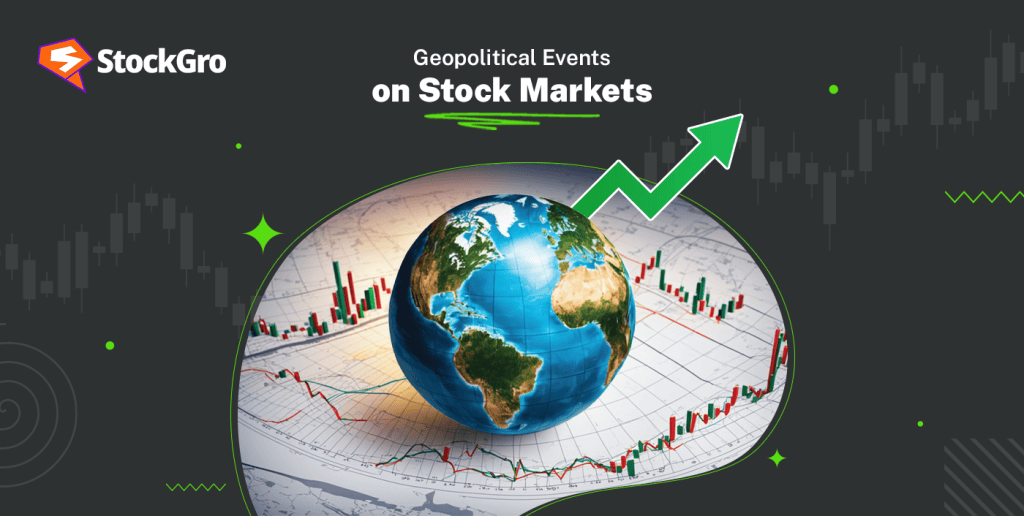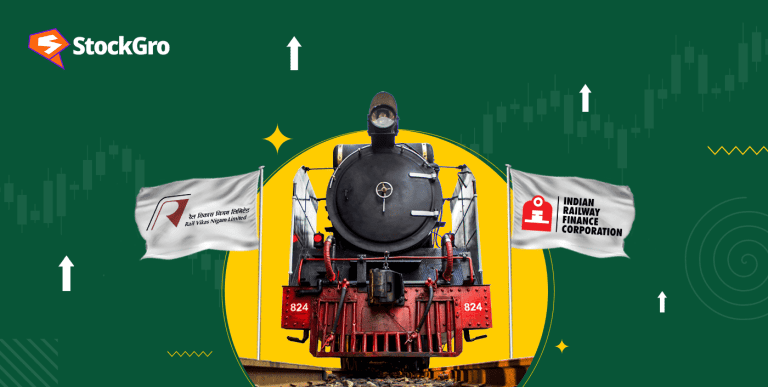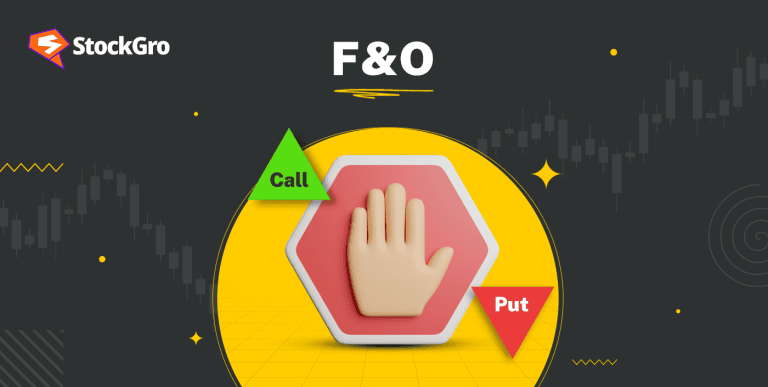
Did you know that historically, stock markets have fluctuated greatly in response to global events like wars, trade disputes, or abrupt political upheavals, often suffering significant losses in a single day? Such occurrences challenge global markets and force investors to reconsider their plans.
Geopolitics and the stock market are closely related; global uncertainty often sets off market volatility. Geopolitical events can throw off supply lines, affect the cost of commodities, and erode investor confidence. Although some industries might gain from these developments, others might experience major downturns, resulting in a complicated network of risk and possibilities.
This article will examine how significant geopolitical events influence stock markets, investigate how different kinds of events affect different sectors, and offer practical advice for investors to negotiate such choppy times.
What are geopolitical events?
Geopolitical events are major occurrences resulting from interactions between countries or within regions, such as regime changes, diplomatic standoffs, wars, trade restrictions, and pandemics. These events influence global politics and international relations.
These events are inherently unpredictable and can have widespread effects over different time frames. While some, like trade disputes, develop gradually, others, such as sudden military conflicts or natural disasters, have immediate and extensive impacts.
In the stock market, geopolitical events create uncertainty, which drives volatility. This uncertainty forces investors to reassess their risks, leading to sudden sell-offs or changes in asset allocation. They can significantly impact various industries by altering economic fundamentals or investor sentiment.
Types of geopolitical events and their impacts
- Wars and conflicts
Wars and conflicts significantly affect global markets, particularly sectors like energy and defense. For example, the Russia-Ukraine war upset energy supplies, causing oil prices to surge to well over $110 per barrel. This spike set off a domino effect in sectors reliant on energy inputs, affecting economic growth and household finances globally. Because of more uncertainty, investor mood usually suffers and results in sell-offs in more general markets.
- Trade wars and sanctions
Trade conflicts and economic penalties seriously affect export-oriented sectors and disturb world supply lines. One such illustration is the US-China trade spat, which resulted in higher tariffs, with the US imposing tariffs on $250 billion worth of Chinese imports and China retaliating with tariffs on $110 billion worth of US goods. Businesses depending on foreign markets might see diminishing income and lower stock values during protracted trade uncertainty.
- Political instability
Market volatility can arise from political events including elections, coups, or policy changes. Brexit, for instance, brought great uncertainty into European markets that would have an impact on anything from manufacturing to banking. With markets sometimes reacting quickly to unanticipated results, such occurrences might affect foreign investment inflows and domestic market attitude.
- Pandemics and global health crises
Pandemics and other global health emergencies change the dynamics of markets, therefore affecting travel, healthcare, and e-commerce. For example, the COVID-19 pandemic led to a sharp decline in travel and hotel stocks, while e-commerce revenue rose by 19% globally in 2020. Such incidents highlight how sensitive the market is to general disturbances in health.
How do stock markets react?
Stock markets are often highly sensitive to breaking news of geopolitical events, reacting with sharp movements. For instance, announcements of global conflicts or health emergencies can trigger sudden declines or rallies as investors respond to uncertainty. These reactions are amplified by speculative trading and investor panic.
One prominent incident that had a significant influence on stock prices is the India-Pakistan air conflict. Rising geopolitical concerns caused the Sensex to decline 238 points while the Nifty dropped 188 points. The Karachi Stock Exchange fell similarly, losing 3.30% or 1,280 points.
You may also like: Indian elections & stock market volatility
Geopolitical events usually affect several industries unevenly. While sectors including tourism, aviation, and retail may suffer, industries like defence and healthcare could witness a boom in demand. For instance, interruptions in oil supplies brought on by world conflicts could cause growing energy prices, therefore affecting manufacturing and transportation.
Among the noteworthy incidents are the September 2019 drone strikes on Saudi Aramco’s Abqaiq and Khurais oil installations. Saudi Arabia’s oil output was greatly lowered by these strikes, which also drove up world oil prices. The Saudi stock market dropped 2.3% on Sunday trade the day following the strike; Brent Crude oil futures prices jumped approximately by 20%, the biggest increase since the invasion of Kuwait.
- Safe-haven investments
Unstable times force investors towards safer assets as stable currencies, gold, or government bonds. Particularly gold prices tend to soar as investors try to protect their fortune in uncertain times. This trend sometimes mirrors more general patterns in fixed-income securities and commodities.
One noteworthy development is the continued war between Russia and Ukraine, which has caused demand for safe haven assets to drive up gold prices for the fourth day in a row. While U.S. gold futures jumped by 0.2% to $2,656.10, spot gold prices climbed by 0.2% to $2,654.50 per ounce.
Must read: Geopolitical Risks and Their Impact on Gold Prices
Over time, markets usually adapt to new geopolitical reality even if they are first erratic. Patient investors usually see a slow comeback and even chances for expansion in developing industries. For instance, industries including technology and e-commerce have shown resilience and expansion after significant worldwide disturbances.
One significant occurrence is India’s demonetisation campaign in 2016, which prompted e-commerce companies to provide steep discounts in order to stimulate sales. Many consumers avoided online buying once high-value currency notes were withdrawn since the cash-on- delivery option was suspended.
How investors can navigate geopolitical volatility
Managing global volatility calls for informed decision-making, patience, and strategy together. These are some main strategies:
- Diversify portfolio: Spread investments across various asset classes, regions, and industries to mitigate the impact of market volatility. A mix of stocks, bonds, and commodities can offer a balanced risk-reward profile.
- Focus on long-term goals: Stick to long-term financial objectives to avoid emotional decisions like panic selling during short-term market shocks. Historically, markets recover from geopolitical events, rewarding patient investors.
- Monitor safe-haven assets: Invest in assets like gold, government bonds, and stable currencies during uncertain times to protect capital.
- Stay informed but avoid overreaction: Stay updated on geopolitical events but avoid overreacting to dramatic news. Rely on credible sources and focus on long-term impacts rather than immediate market reactions.
- Consult financial advisors: Seek advice from financial advisors to create customised investment plans based on your risk tolerance and financial goals, especially during volatile periods.
You may also like: Portfolio Diversification and Its Benefits
Bottomline
Geopolitical events provide a two-edged challenge: they expose major risks but also give chances for those who address them sensibly. Though unpredictable, these incidents serve as reminders to investors of the need of being alert and flexible.
It’s essential to keep a cool head and avoid reacting during such unpredictable times. Emphasising long-term objectives together with a diversified portfolio approach will assist reduce risks and open possible possibilities. Further helping stability under trying circumstances are safe-haven investments and wise financial guidance.
Ultimately, while no one can predict the future, resilience and preparedness are key to navigating the complexities of geopolitical volatility.
FAQs
How does geopolitical risk affect the financial markets?
Geopolitical risk introduces uncertainty and volatility into financial markets. Wars, trade conflicts, and political unrest can throw off supply networks, influence commodities’ pricing, and lower investor confidence. Sharp market swings follow from this, with sectors like energy and defence usually seeing gains and retail and tourist sometimes suffering. Seeking stability among the turbulence, investors swarm to safe-haven assets like gold and government bonds at such times.
How does geopolitics affect the supply chain?
Geopolitics disturbs trade routes, raises tariffs, and creates shortages of vital resources that so influences supply chains. Events including political unrest, commercial conflicts, and wars can stop output, slow down shipments, and drive expenses. For instance, the Russia-Ukraine conflict disturbed energy supplies, which drove oil prices to rise, thus affecting manufacturing and transportation all around. Businesses have to move with the times by spreading suppliers and boosting inventory to help to reduce risks.
What are the factors influencing the impact of geopolitical events?
The type and scope of the event, the impacted areas, and economic dependencies all help to determine the influence of geopolitics. While trade wars and sanctions affect export-oriented sectors, wars and conflicts disturb supply chains and commodities prices. Political unrest may cause market volatility; pandemics affect world health and economic growth. Determining the overall influence on financial markets also depends much on investor attitude and market reactions.
Does geopolitical risk affect acquisitions?
Yes, geopolitics influences acquisitions by generating financial market uncertainty and volatility. As businesses grow wary of possible risks, this can cause delays or cancellations of deals. Geopolitical events include wars, trade conflicts, and political unrest can throw off supply networks, change values, and raise government scrutiny. Companies might thus change their acquisition plans, give risk management first priority, and look for more steady investment surroundings.
How do you hedge geopolitical risk?
Hedging geopolitical risk means spreading out assets throughout several asset classes, areas, and sectors. Funds can be put towards safe-haven assets such gold, government bonds, and stable currencies. Managing risks also comes from keeping a long-term investment plan, following world events, and speaking with financial advisers. Investors can better negotiate the uncertainty generated by geopolitical events by distributing their money and stressing stability.

